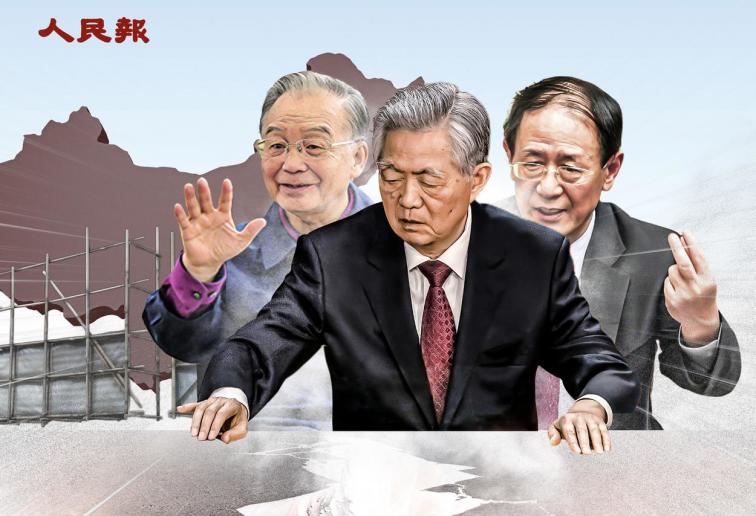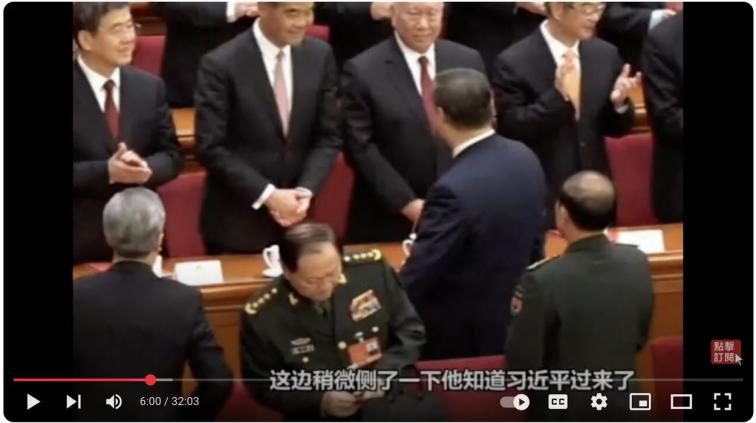Reference image: Protesters hold a legislative election day rally in Hong Kong. On September 6, 2020, riot police raised warning flags during anti-government protests in Hong Kong. Nearly 300 people were arrested during protests against the government's decision to postpone the Legislative Council election due to the newly implemented National Security Law. (Photo by Anthony Kwan/Getty Images)
[People News] As the saying goes, “Those who are close to ink are stained black.” Governments that grow too close to the CCP’s dictatorship are easily contaminated. The recent incident of Hong Kong democracy leader Nathan Law being denied entry to Singapore and forcibly deported not only exposes the CCP’s black hand extending into Singapore, but also shows the regime’s infiltration is everywhere.
According to a Liberty Times summary of an AP report, Nathan Law—an exiled Hong Kong pro-democracy activist wanted by the Hong Kong National Security Bureau with a HK$1 million bounty—issued a statement on the 29th saying that when he travelled to Singapore last weekend on a valid visa, he was arbitrarily detained at the airport. After being held for about 14 hours, he was forcibly deported. Law sharply criticised Singapore’s move as clearly “political in nature” and suspected Beijing’s hand was behind it.
Now living in London, Law explained that he had applied for and obtained a valid Singapore visa in order to attend an invitation-only closed-door meeting. On the 27th, he flew from San Francisco to Singapore.
However, upon arrival at the airport, he was immediately detained by officials. After four hours of interrogation, Singaporean authorities only told him he was “denied entry,” without providing any reason. After a total of about 14 hours in detention, on the 28th, he was forced to board a plane back to San Francisco.
Regarding this outrageous experience, Law said in his statement: “I believe the decision to deny my entry was political, although I cannot be sure whether external forces—such as the People’s Republic of China—were directly or indirectly involved.” Singapore’s Ministry of Home Affairs did not immediately respond.
Since Beijing forcibly imposed the Hong Kong National Security Law in 2020 and crushed the anti-extradition protests, many pro-democracy figures have been jailed or driven into exile. Law, along with Joshua Wong and others, has been a symbolic figure of Hong Kong’s student movement since the 2014 “Umbrella Revolution.”
In 2023, Hong Kong police escalated further, issuing HK$1 million bounties for Law and seven other exiled activists abroad. Singapore’s refusal to allow Law entry is clearly an extension of this transnational repression.
U.S. Think Tank Exposed CCP Infiltration in Singapore
As early as July 16, 2019, a Taiwanese scholar based in the U.S. published a report at the Jamestown Foundation in Washington, D.C., pointing out that the CCP employs united front tactics to influence Singapore’s Chinese community through local chambers of commerce, clan associations, cultural organisations, and Chinese-language media—deliberately guiding public opinion and policy directions.
The study, authored by Russell Hsiao, Executive Director of the Global Taiwan Institute, explained that the CCP uses chambers of commerce, media outlets, clan networks, and cultural groups to shape Singapore’s public opinion and policy, to strengthen Chinese Singaporeans’ sense of “Chinese identity,” and to tilt Singapore’s policies in favour of Beijing.
The report revealed that the CCP pressures Singaporean businesspeople with contracts, permits, and loans. Chambers of commerce have become lobbying tools, while united front organisations openly promote “Chinese consciousness” among Singapore’s Chinese population through overseas Chinese gatherings and ancestral homeland tours.
At the same time, CCP leader Xi Jinping has been blurring the line between “Chinese nationals” and “overseas Chinese” through policy, a trend that has already raised concerns in Singapore. As–U.S.-China rivalry intensifies, Singapore faces growing pressure to take sides. With Singapore’s recent refusal to admit Nathan Law, does this suggest that some within the Singaporean government have already chosen their answer to that question? △











News magazine bootstrap themes!
I like this themes, fast loading and look profesional
Thank you Carlos!
You're welcome!
Please support me with give positive rating!
Yes Sure!